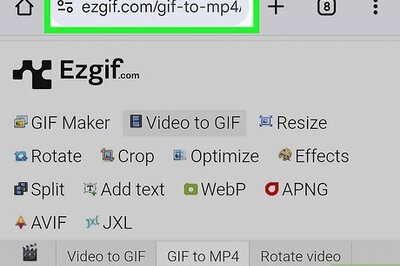
views
The National Testing Agency (NTA) has extended the PhD entrance test registration deadline for Delhi University (DU), Jawaharlal Nehru University (JNU), Banaras Hindu University (BHU), and Babasaheb Bhimrao Ambedkar University (BBAU). According to the latest update, candidates can now fill out the application form until September 22. The correction window will be open from September 23 to September 24. Interested candidates can register themselves through the official website of NTA at nta.ac.in.
DU, JNU, BHU, and BBAU PhD Entrance Test: Steps to Apply
Step 1: Navigate to the official website of phd-entrance.samarth.ac.in.
Step 2: Open the registration page and generate login details.
Step 3: Login and fill out the application form, including your personal and academic details.
Step 4: Once all the details are filled out, attach the required documents and pay the application fee.
Step 5: Check all the details before submitting the form.
Step 6: If needed, save and take a printout of the PhD entrance test application form for your use.
Candidates who have completed their postgraduate (PG) or qualifying examination or plan to take the PhD Entrance Test 2023 are eligible to apply. Additionally, there are no age restrictions.
DU, JNU, BHU, and BBAU PhD Entrance Test: Registration Fees
Candidates who belong to the general category will have to pay a registration fee of Rs. 1,200. On the other hand, SC, ST, and third-gender candidates will have to give Rs 1,100. PwBD category candidates are required to pay Rs 1,000 as the application fee.
DU, JNU, BHU, and BBAU PhD Entrance Test: Exam Pattern
In the PhD entrance exam, most question papers will be in English, except for the language papers. The exam will be administered on a computer in a multiple-choice question (MCQ) format, comprising a total of 100 questions to be answered within a 3-hour or 180-minute timeframe. Students can opt for any of the 97 cities where the NTA PhD entrance exam 2023 will be conducted online.
The entrance paper will consist of two sections, i.e., Section 1 on research methodology and Section 2 on the specific subject chosen by the candidate. If the timing of the two papers does not overlap, a candidate can select up to three courses.

















Comments
0 comment